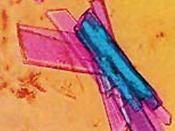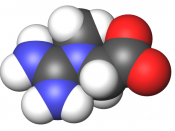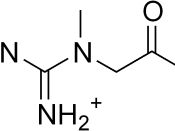Performance Enhancing Supplement: Creatine
Abstract
Performance enhancing supplements are becoming more popular in the sports world today. Some supplements such as glutamine, creatine, and carbohydrate powders are considered to be legal, while other enhancing drugs such as dopamine, anabolic androgenic steroids, and stimulants such as amphetamines and ephedrine are considered to be illegal. Even though supplements have been proven to have an increase on performance and muscle mass, they also come with negative side effects. However, the supplements that tend to be legal are the ones that are naturally occurring in our bodies. An example of this is Creatine, which is a naturally produced substance from amino acids in the human body, and provides energy to all cells, primarily muscles. There are many other naturally occurring substances in our bodies that can be purchased as a supplement, but there are also performance enhancing drugs that are harmful to our bodies and are banned in many programs.
Overview of Creatine
Since creatine is naturally occurring in the human body, the supplement is considered to be a dietary nutrient, not a drug. Creatine is not a banned substance in the NFL, NBA, MLB, NHL, NCAA or the Olympics. This is a supplement that would be hard to test for since it is naturally occurring and found in many foods. Creatine is important because it helps produce energy which is vital in working out. Creatine in the body increases the production of ATP; our bodies use ATP as a source of energy, particularly in the muscles. Creatine has been proven to be beneficial in high-intensity, short duration activities, such as weight lifting. It does not seem to help with performance in activities that require long duration, such as running. Sports that have been commonly known for using creatine supplementation are weight...


